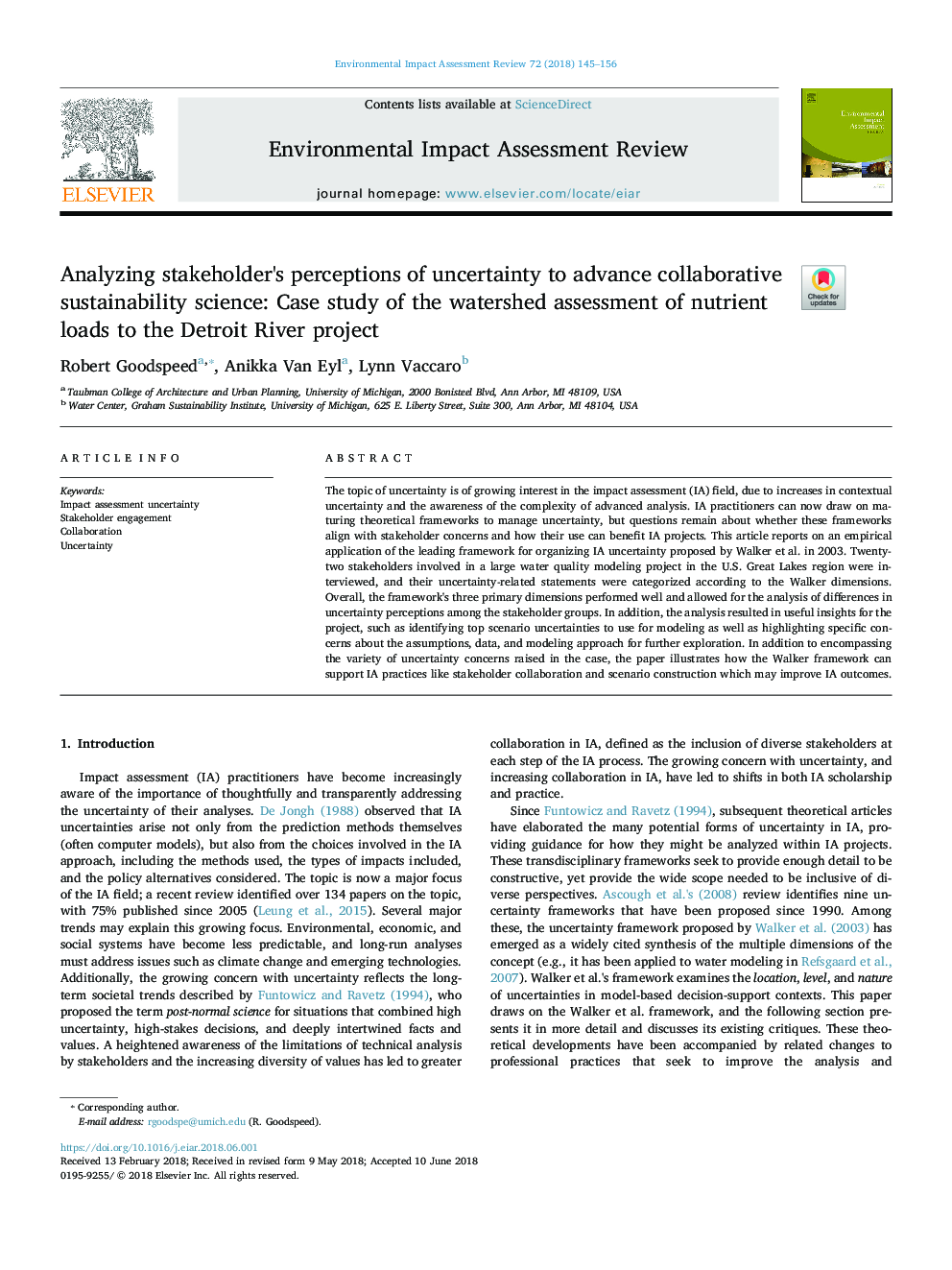| Article ID | Journal | Published Year | Pages | File Type |
|---|---|---|---|---|
| 7464733 | Environmental Impact Assessment Review | 2018 | 12 Pages |
Abstract
The topic of uncertainty is of growing interest in the impact assessment (IA) field, due to increases in contextual uncertainty and the awareness of the complexity of advanced analysis. IA practitioners can now draw on maturing theoretical frameworks to manage uncertainty, but questions remain about whether these frameworks align with stakeholder concerns and how their use can benefit IA projects. This article reports on an empirical application of the leading framework for organizing IA uncertainty proposed by Walker et al. in 2003. Twenty-two stakeholders involved in a large water quality modeling project in the U.S. Great Lakes region were interviewed, and their uncertainty-related statements were categorized according to the Walker dimensions. Overall, the framework's three primary dimensions performed well and allowed for the analysis of differences in uncertainty perceptions among the stakeholder groups. In addition, the analysis resulted in useful insights for the project, such as identifying top scenario uncertainties to use for modeling as well as highlighting specific concerns about the assumptions, data, and modeling approach for further exploration. In addition to encompassing the variety of uncertainty concerns raised in the case, the paper illustrates how the Walker framework can support IA practices like stakeholder collaboration and scenario construction which may improve IA outcomes.
Related Topics
Physical Sciences and Engineering
Energy
Renewable Energy, Sustainability and the Environment
Authors
Robert Goodspeed, Anikka Van Eyl, Lynn Vaccaro,
